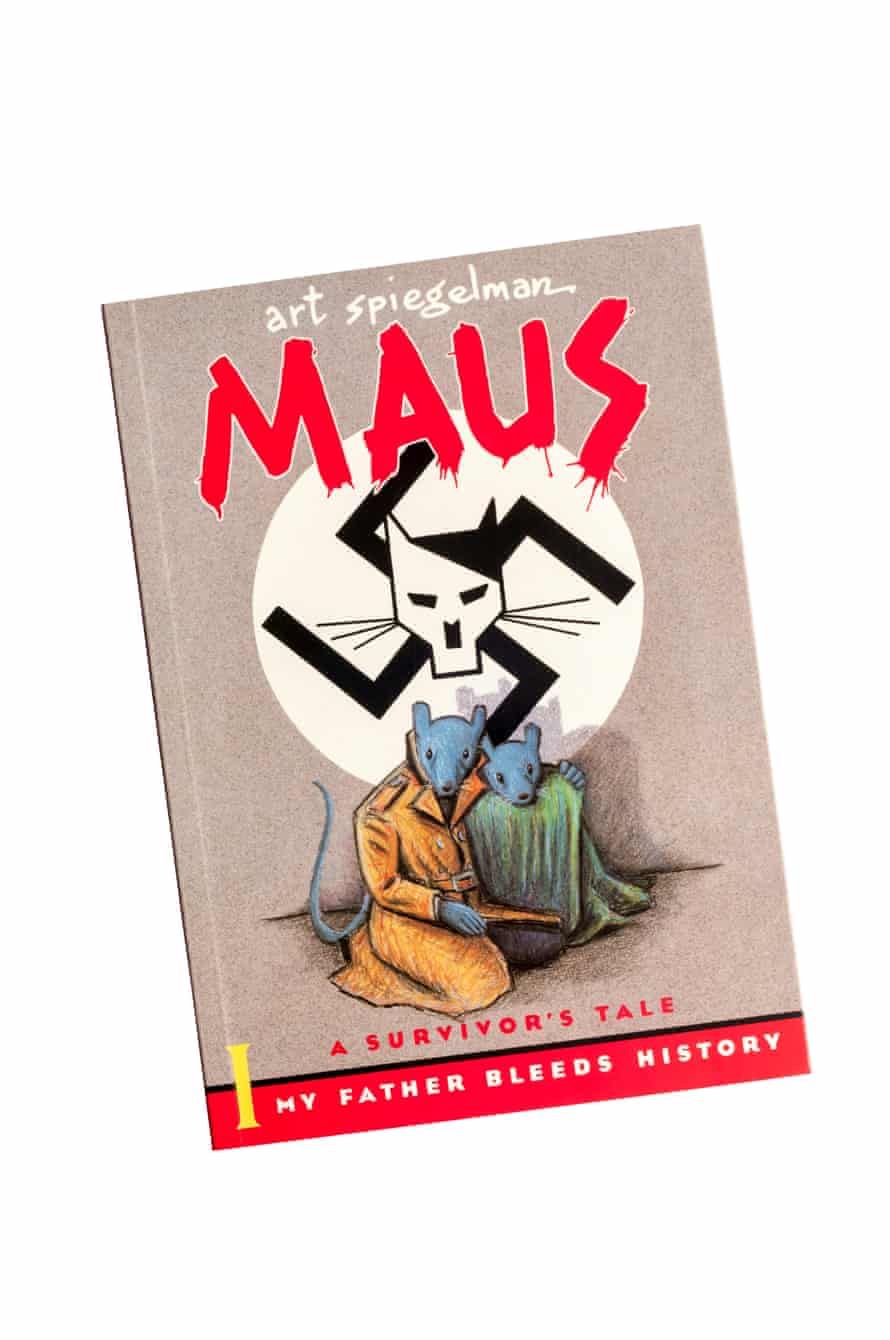A Tennessee school board has banned a Pulitzer Prize-winning novel from its classrooms for eight swear words and an illustration of a naked cartoon mouse.
The graphic novel, Maus: A Survivor’s Tale by New Yorker Art Spiegelman, uses hand-drawn illustrations of mice and cats to depict how the author’s parents survived Auschwitz during the Holocaust.
Graphic memory elevated a pulp mass medium to a high art when it garnered a slew of literary awards in 1992, but it seems to have failed to impress educators in Mcminn County.
Ten board members unanimously agreed in favor of removing the novel from the eighth grade curriculum, citing the use of the phrase “Damn” and drawings of “nude photos” of women, according to minutes taken from a board of education meeting earlier this month.

“There is crude and objectionable language in this book,” school principal Lee Parkison is recorded as saying as he opened the session’s opening remarks.
Parkison went on to say that he had “consulted with our attorney” and as a result, “we decided that the best way to fix or handle the language in this book was to redact it… to get rid of the eight swear words and the image of the woman.” . that was contested.”
Board member Tony Allman supported the move to remove “vulgar and inappropriate” content, saying, “We don’t need to enable or promote this material in any way.”
“I don’t deny that it was horrible and brutal and cruel,” Allman said, referring to the genocide and murder of six million European Jews during World War II.
“It shows people hanging, it shows them killing children, why does the education system promote this kind of thing? It is not wise or healthy,” he added.
Allman also took aim at Spiegelman himself, claiming, “I may be wrong, but this guy who created the artwork used to do the graphics for Playboy.”
“You can see his story and we are allowing him to make graphics in books for elementary students. If I had a child in eighth grade, this would not happen. If I were to move him and homeschool him or put him somewhere else, this won’t happen.”
Mike Cochran, another school board member, described parts of the book as “completely unnecessary.”
“We’re talking about teaching our children ethics, and it starts with the father and the son talking about when the father lost his virginity. It wasn’t explicit, but it was there,” Cochran said.
“We don’t need these things to teach children history. We can teach them history and we can teach graphic history. We can tell you exactly what happened, but we don’t need all the nudity and all the other stuff.”
Cochran proposed revising the entire curriculum over concerns that it was developed to “normalize sexuality, normalize nudity, and normalize vulgar language.”
“If I was trying to indoctrinate someone’s children, this is how I would do it,” he added. “You put this far enough on the edges, so parents don’t catch it, but kids absorb it. I think we need to review the entire curriculum.”
The decision comes as conservative groups across the country are ramping up campaigns to ban books from school libraries, often focused on works that address issues of race, LGBTQ or marginalized communities.
The board had some supporters with Julie Goodin, a supervisor of instruction and former history teacher, and Melasawn Knight, a supervisor of federal programs, who backed the novel’s inclusion in the curriculum.
“I think every time you’re teaching some history, people hanged themselves from trees, people committed suicide and people were killed, over six million were killed. I think the author is portraying that because it’s a true story about his father going through that,” Knight said.
“I can talk about history, I was a history teacher and there is nothing pretty about the Holocaust and for me this was a great way to represent a horrible moment in history,” Goodin added.
After much discussion over the wording of words that members found objectionable, the board ultimately decided that, in addition to copyright concerns, it would be best to ban the graphic novel altogether.
Spiegelman said he was “shocked” by the result in an interview with CNBC On Wednesday. “It makes my jaw drop, like, ‘What?’” the 73-year-old author said, adding that he thought the school board was “Orwellian” for passing the ban.
Spiegelman’s Jewish parents were sent to Nazi concentration camps and his mother took her own life when he was just 20 years old.
“I’ve met so many young people who … have learned things from my book,” Spiegelman said. “I also understand that Tennessee is obviously crazy. Something is going very, very crazy there.”
www.theguardian.com
George is Digismak’s reported cum editor with 13 years of experience in Journalism